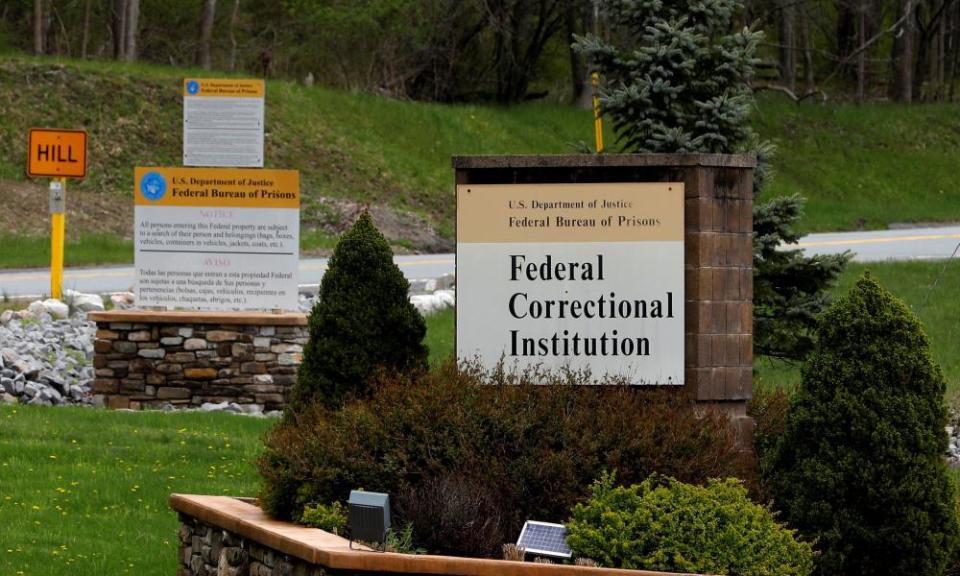Khaki uniform, jingling keys, snoring: what Michael Cohen will find in prison

Michael Cohen, the former longtime aide to Donald Trump, is scheduled to report to federal prison on Monday to begin serving a three-year sentence.
Cohen, 53, was sentenced last December for tax evasion, lying to Congress and campaign finance violations. He becomes the third former Trump aide to go to prison in the past 12 months.
But that’s not how he sees it.
“How come I’m the only one?” he said in an interview last month with the New Yorker, in one of his few recent public statements. “I didn’t work for the campaign. I worked for him. And how come I’m the one that’s going to prison? I’m not the one that slept with the porn star.”
The one who slept with the porn star, of course, was Trump, according to everyone involved except Trump. But it was Cohen who illegally paid off Stormy Daniels, the actor, on the eve of the 2016 presidential election, and it was Cohen who subsequently lied to Congress and to investigators about a project to build a Trump Tower in Moscow.
Cohen acted, he said at his sentencing, at the direction of Trump, and out of a “blind loyalty” to him. But Trump’s attorney general, William Barr, has declined to pursue charges against the president, calling evidence gathered by special counsel Robert Mueller in his Trump-Russia investigation “not sufficient”.
Sign up for the US morning briefing
And so it is Cohen’s life, and not Trump’s, that is about to be upended. Upon reporting to the federal correctional institution in Otisville, New York, about 90 miles north of his home in New York City, Cohen will trade in his favored Isaia suits for a khaki uniform, and say goodbye to his wife and two children.
The prison, which houses about 800 inmates, has been rated among the country’s cushiest, thanks to its facilities for non-violent offenders which include bunkhouse-style sleeping and personal lockers.
It is also especially set up for Jewish inmates, such as Cohen will be, with availability of such specialty foods as matzoh ball soup, gefilte fish and rugelach pastries, as well as access to a full-time rabbi.
Prison consultants say Otisville has become a requested destination for Jewish inmates due to its proximity to New York City’s large Jewish population and upstate New York’s Orthodox Jewish enclaves.
But it’s still prison, former Otisville case manager Jack Donson said.
“Prison is disrespectful. It’s impersonal,” Donson said. “He’s never going to get any sleep because there’s always lights on, there’s always inmates snoring. There are officers walking around jingling keys. You shower out in the open. It’s very demeaning.”

The entrance to the federal correctional institution at Otisville, New York, where Michael Cohen will be imprisoned for three years.Photograph: Mike Segar/Reuters
Just nine months ago, Cohen was still misleading investigators in an effort to defend Trump, perhaps hoping for a presidential pardon.
But after pleading guilty in the southern district of New York to charges including a failure to report more than $4m in income from his taxi and real estate businesses, to avoid taxes, Cohen began cooperating with Mueller.
The results of that cooperation are visible in hundreds of footnotes and citations throughout a 448-page report Mueller submitted to Barr in March.
In multiple interviews with Mueller’s team, Cohen described the Trump Tower Moscow plan, the existence of which Trump had long denied. He recalled conversations with Trump “in which the candidate suggested that his campaign would be a significant ‘infomercial’ for Trump-branded properties”. Cohen recalled that Donald Trump Jr “may have told candidate Trump about an upcoming meeting to receive adverse information about Clinton, without linking the meeting to Russia”.
In pre-sentencing court documents, Mueller’s team argued that testimony provided by Cohen had advanced the public good and could warrant leniency.
The “public good” argument was apparently lost on the president. “After Cohen began cooperating with the government in the summer of 2018,” Mueller wrote, “the president publicly criticized him, called him a ‘rat’, and suggested that his family members had committed crimes.”
That last accusation by the president – that Cohen is a “rat” – could represent a hazard for Cohen in prison, the Maryland representative Elijah Cummings, the Democratic chairman of the House oversight committee, warned at a hearing with Cohen in February.
“I know that it’s painful going to prison,” Cummings told Cohen. “I know it’s got to be painful being called a rat. And let me explain, a lot of people don’t know the significance of that, but I live in the inner city of Baltimore, all right? And when you call somebody a rat, that’s one of the worst things you can call them because when they go to prison, that means a snitch.
“I’m just saying.”
But Justin Paperny, a former inmate whose consulting firm White Collar Advice has clients in the camp, reckoned Cohen is unlikely to face retaliation from Trump fans angered by his decision to cooperate against the president, because inmates in minimum-security prisons are serving relatively short sentences and want to keep them that way.
“You’ll find that because prisoners have such clearly defined release dates, they don*t want to do anything that could lead to them staying in prison a longer period of time,” he said.
Associated Press and Reuters contributed to this report

